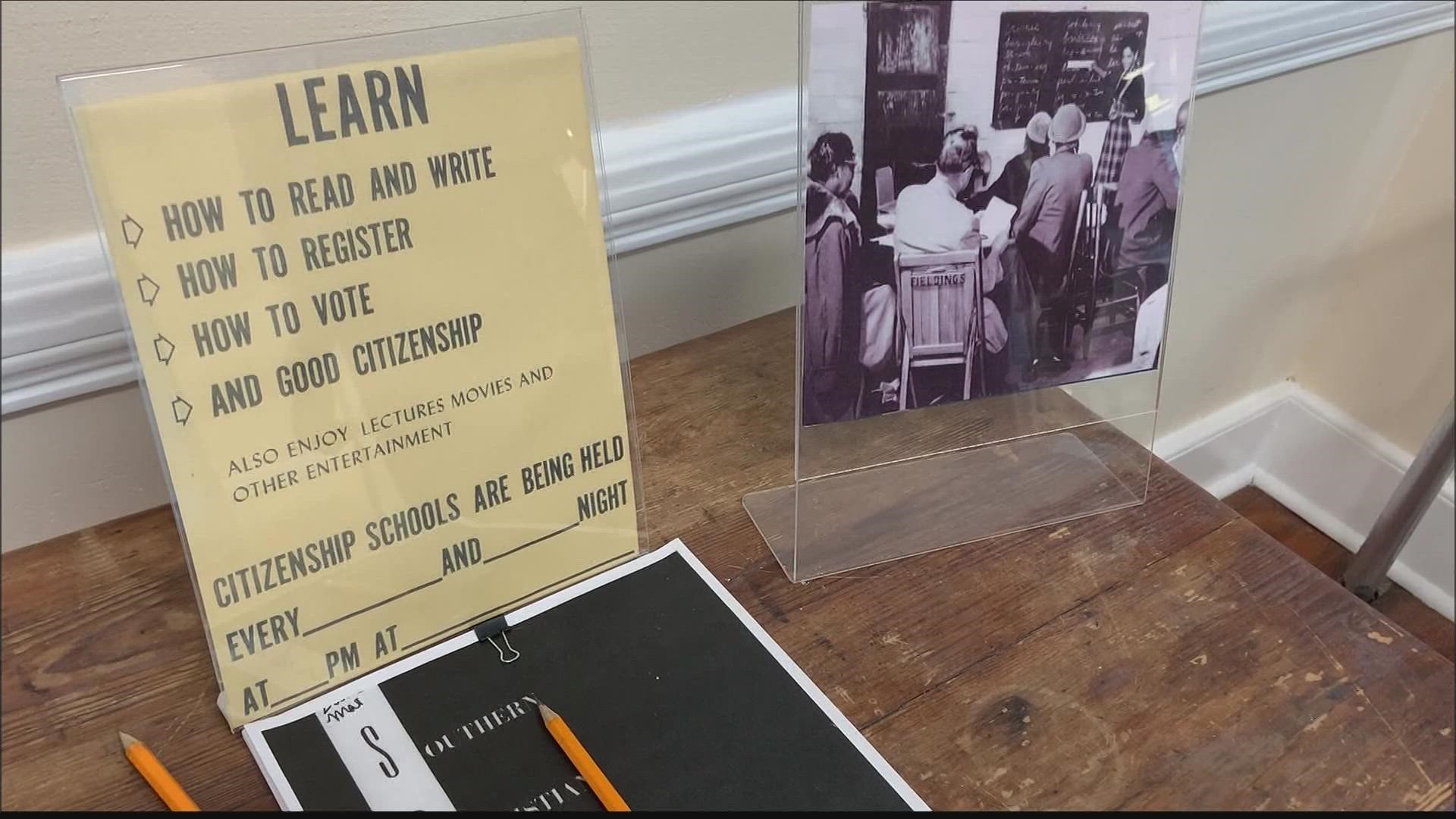MIDWAY, Ga. — A bit of obscure civil rights history begins in a south Georgia community that was central to some of the movement’s most important moments in the ’60s.
In metro Atlanta, Liberty County is best known as the home of the Fort Stewart Army post. It’s well known for something quite different in the civil rights movement.
"It is one of the best-kept secrets in the south," Al Williams said, a lifelong resident of Midway who is now a Democratic state representative from Liberty County.
As a boy, Williams would see visitors flock to a school in his hometown called Dorchester – which had quietly become a training center and retreat for the Southern Christian Leadership Conference, led by Dr. Martin Luther King Jr.
"I just would walk down there every time they came," Williams said in an interview. "Periodically, just about everybody who was anybody in the movement came through Dorchester for one reason or another."
This was the site where SCLC staff game-planned now-historic efforts to desegregate the Alabama cities of Selma and Birmingham. The ringleader at Dorchester was Andrew Young – who had just joined SCLC. Aside from Young and King, activists including Fannie Lou Hamer, Septima Clark and Dorothy Cotton frequented the Dorchester site.
"We needed a place to train people to pass the literacy tests" that were forced on voting-age Black residents, required under Jim Crow laws to register to vote, Young said in an interview.
Young said volunteers would train in Dorchester to teach people in their communities how to read – so that they could vote.
Young said they used familiar items like hymnals and Coca-Cola signs to help them understand the written word.
"We would teach them that they (already) know how to read. And how to focus what you know, and what you don’t know that you know," Young said. "And it was a way to tell people they were smarter than you think they are."
Young went on to become a top confidant of Dr. King, a member of Congress, ambassador to the United Nations, and mayor of Atlanta.
Volunteers in Dorchester would return to their hometowns to give reading lessons engineered at the Liberty County site. "Thousands of people became literate as a result of the work at Dorchester," Williams said.
As a boy, Williams said he remembers seeing Dr. King and others playing ball on the grounds outside – often in a shirt and tie.
"I was able to have some short conversations with Dr. King. Played softball with him, played basketball with him," Williams said, who also marched as a teen with Dr. King in the successful Selma-to-Montgomery march that followed Bloody Sunday in March 1963.
Now the site is a modest museum in a spot mentioned in civil rights histories but easily overlooked because of its rural location.
"We’ve dedicated this wing to women leaders of the civil rights movement," historian and curator Hermina Glass-Hill said, gesturing to exhibits showing Cotton, Hamer and Angela Davis.
"Thousands of people all over the south owe so much to Dorchester because their parents and grandparents went to Dorchester and brought (literacy training) home," Williams said.

